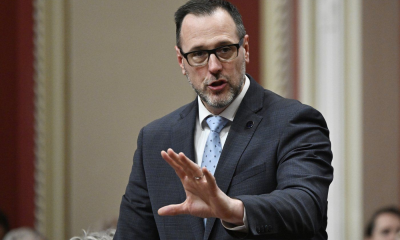In October 1973, Arab oil producers led by Saudi Arabia imposed an oil embargo on the United States and other nations backing Israel during the Yom Kippur War. That bold move triggered a global energy crisis and helped bring about a ceasefire. It was a rare moment of Arab assertiveness on the world stage.
Fast forward to today: Israel’s relentless bombardment of Gaza has killed more than 65,000* people—mostly women and children—according to humanitarian sources. A recent UN commission has even accused Israel of committing genocide. Yet, the Arab response has been largely symbolic. Statements of condemnation, calls for restraint, and summits filled with rhetoric have replaced meaningful action. The contrast with 1973 could not be starker.
Since that pivotal year, the Gulf Cooperation Council (GCC) countries—Saudi Arabia, UAE, Qatar, Kuwait, Bahrain, and Oman—have spent close to half a trillion dollars on Western weapons. According to estimates from the SIPRI Arms Transfers Database:
- Saudi Arabia: $150–200+ billion
- UAE: $50–80+ billion
- Qatar: $30–50+ billion
- Kuwait: $20–30+ billion
- Bahrain & Oman: $10–20+ billion (combined)
Keep supporting MuslimMatters for the sake of Allah
Alhamdulillah, we're at over 850 supporters. Help us get to 900 supporters this month. All it takes is a small gift from a reader like you to keep us going, for just $2 / month.
The Prophet (SAW) has taught us the best of deeds are those that done consistently, even if they are small.
Click here to support MuslimMatters with a monthly donation of $2 per month. Set it and collect blessings from Allah (swt) for the khayr you're supporting without thinking about it.
Yet, despite this massive investment, not a single GCC country has fired a weapon at Israel since 1973. The only direct military involvement by a Gulf state was a small Saudi contingent in the 1948 Arab-Israeli War—before the GCC even existed.
Meanwhile, Israel has not hesitated to strike targets in GCC countries. In September 2025, Israeli warplanes bombed a location in Doha, Qatar, targeting Hamas leaders and killing several Qatari citizens. This brazen act exposed the vulnerability of even the most well-armed Arab states and the hollowness of their strategic alliances.
So why do GCC countries continue to spend billions on weapons they never use against the region’s most aggressive actor? The answer lies in the geopolitical narrative shaped by Western powers. The USA and its allies have long portrayed Iran, Iraq, and other Shi’a-majority nations as the primary threats to Gulf stability. Western arms sales are marketed not just as tools of defense but as symbols of prestige and political alignment.
Citizens are rarely told that these contracts often include restrictions on how and where the weapons can be used—especially against Israel. Using Western-supplied arms against Israel would likely trigger sanctions, loss of military support, and diplomatic fallout. GCC leaders are reminded of Iran’s fate since the fall of the Shah in 1979—a cautionary tale of defiance punished by isolation.
Even more troubling is the lack of protection these alliances offer. The United States, which maintains military bases across the Gulf, did not warn Qatari leaders about the impending Israeli strike in Doha. The so-called safety net proved worthless. The U.S. response was muted, and no action was taken against Israel. The message was clear: when Israel attacks, even America’s closest Arab allies are left exposed.
President Joe Biden has openly called Israel a “God-send” for the United States. He once remarked that if Israel didn’t exist, America would have to invent it. President Donald Trump is even more unabashed in his support for Israel. His daughter Ivanka converted to Judaism, and his son-in-law Jared Kushner—a deeply connected Orthodox Jewish real estate mogul—played a central role in shaping Trump’s Middle East policy. Trump’s designation of Qatar as a Major Non-NATO Ally in 2022 did little to shield it from Israeli aggression. Qatari officials were informed of the airstrike only ten minutes after it occurred.
So what good are trillions of dollars in weapons if GCC countries won’t defend their own sovereignty, let alone protect Palestinians from Israeli aggression? Qatar didn’t retaliate. Instead, it convened a summit in Doha to discuss the attack.
The result? A familiar spectacle of unity and impotence.
Leaders from the Arab League and the Organization of Islamic Cooperation (OIC), joined by representatives from Indonesia to Senegal, gathered in Doha to express solidarity. The summit concluded with a strongly worded communique condemning Israel and reaffirming support for Qatar. But beyond the rhetoric, there were no sanctions, no diplomatic breaks, no economic pressure—just words.
It was a stark reminder that 0 + 0 + 0 + … + 0 still equals 0.
At the summit, Gulf leaders called on the United States to rein in Israel. Jasem Mohamed al-Budaiwi, Secretary General of the GCC, urged Washington to use its “leverage and influence” to stop Israeli aggression. But such appeals are increasingly disconnected from reality. Trump’s recent comment—“it’s up to Israel what it does in Gaza”—underscored the futility of expecting restraint from Washington.
Hours after the summit ended, Israeli forces launched a new ground offensive in Gaza City, undeterred by regional condemnation.
When will Arab leaders learn that they cannot rely on a fox to guard a henhouse? Appeasing and paying protection money to those who enable mass murder is not diplomacy—it’s complicity.
The Doha summit laid bare the limits of Arab diplomacy. Despite their oil wealth, modern infrastructure, and global investments, Gulf states have failed to convert economic power into political leverage. This impotence is not just a failure of strategy—it reflects a deeper structural weakness. Without the will or ability to challenge U.S. policy or impose costs on Israel, Arab states are left issuing statements that carry little weight.
As the humanitarian crisis in Gaza deepens and international outrage grows, the Arab world faces a moment of reckoning. Will it continue to rely on symbolic gestures and appeals to Western powers? Or will it rediscover the assertiveness it once wielded in 1973?
For now, the answer seems clear. The communique from Doha may have expressed solidarity, but it did nothing to stop the bombs from falling.
[* This number is a masked figure and reflects an estimated one-tenth of the actual scale, from research noting that “the actual death toll was likely much higher given the exclusion of non-trauma deaths resulting from the destruction of health care facilities, food insecurity, and lack of water and sanitation.”]
Related:
– 150 Muslim Leaders And Institutions Now Say Arab Muslim Nations Should Cancel Abraham Accords, Suspend Oil Sales, Close Airspace To Israel, And Send Diplomatic Aid Mission To Gaza
– What A Rubio: United States Throws Weight Behind Israel After Aggression On Qatar


























Amer Rizvi
September 27, 2025 at 3:05 PM
What a disgrace! Israel is massacring our Palestinian children, and all this sham summit could come up with was the usual final communique of, “Oh please, please do take all possible legal and effective measures to prevent Israeli aggression against Palestinians.”
Pakistan, Malaysia, and Turkey had, I believe, proposed bare-minimum practical measures such as cutting off all diplomatic ties with Israel, boycotting Israeli products, and creating a new joint Arab-Islamic military force for self-defense. Even these were conveniently left out of the final communique! I mean, these three countries weren’t even asking for a declaration of war on Israel.
I also agree with the author when he said that our own government cannot be relied upon to protect its own allies. History proves this, and I know this from personal experience as a child.
In 1971, during the war between Pakistan and India, America, a Pakistan ally, cut off critical military aid while India continued to get full support from its communist Soviet ally. My dad, a commercial pilot, had to fly a large Boeing 707 to China to bring back military aid. I remember a night, when I was four, anxiously waiting for him to return home. On one mission, my dad told us how he managed to lose several Indian fighter jets by flying into a storm and saving the large airplane.
Great article coming at the right time. May Allah (God) reward you.
Hopeful Believer
September 28, 2025 at 9:24 PM
Have they forgotten the words of Faisal bin al Abdul Aziz to the American delegation when he shutdown the oil refinery of Aramco “We are bedouins, we grew up in the desert on milk and dates, we can go back to it, where will you go back to?” Alas, his arab counter parts lack the trust on Allah he had!
Lara
October 5, 2025 at 1:37 AM
At HOPEFUL BELIEVER, glad you brought up the words of Faisal bin Abdul Aziz. Today’s leaders are drunk on “wahn” just like in Rasulullah’s hadith. Love of this world – love of their fast cars, mansions and jets. Sad!